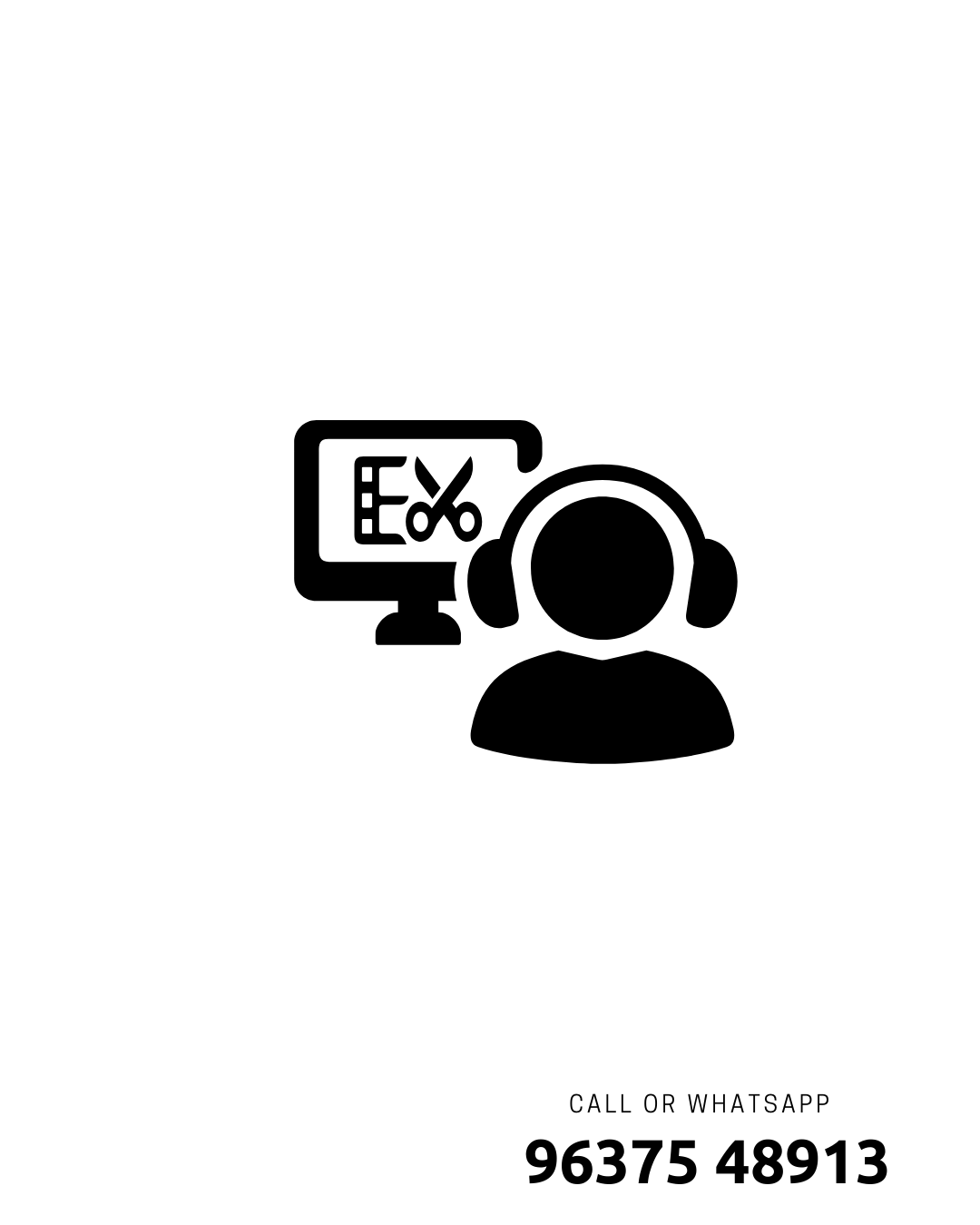Description
The Diploma in Vocational Education (D.Voc) in Editing is a specialized program designed to equip students with the essential skills and knowledge needed to pursue a career in editing for various media formats, including film, television, video, and digital content. This program covers both technical and artistic aspects of editing, focusing on how to tell compelling stories through the effective use of visuals and audio.
Course Details:
Duration: Typically 1 to 2 years, depending on the institution.
Eligibility: Candidates usually need to have completed secondary education (10th or 12th grade). A background in arts, media, or communication can be advantageous but is not mandatory.
Mode of Study: The program is generally offered as a full-time course that combines theoretical learning with extensive hands-on practice.
Curriculum:
The curriculum for a Diploma in Editing typically includes the following key areas:
1. Introduction to Film and Video Editing
Understanding the Role of an Editor:
Overview of editing in film, television, and digital media, and the editor’s role in the production process.
Basics of Editing Principles:
Learning foundational concepts of editing such as pacing, continuity, and storytelling.
2. Editing Software and Tools
Introduction to Editing Software:
Proficiency in industry-standard editing software such as Adobe Premiere Pro, Final Cut Pro, or Avid Media Composer.
Workflow Management:
Understanding digital workflows, file management, and organization for efficient editing processes.
3. Visual Storytelling Techniques
Cutting for Narrative:
Techniques for transitioning between scenes, maintaining storytelling flow, and creating emotional impact through editing.
Use of Visual Effects:
Basics of incorporating visual effects, transitions, and graphics to enhance storytelling.
4. Audio Editing and Sound Design
Editing Audio:
Techniques for syncing audio with video, enhancing dialogue, and adding sound effects and music.
Sound Design Basics:
Understanding how sound contributes to the overall impact of a film or video and learning basic sound editing.
5. Color Grading and Correction
Color Correction Techniques:
Understanding color theory and its application in achieving the desired mood and tone in a project.
Color Grading Tools:
Learning to use color grading software to enhance visual storytelling.
6. Post-Production Workflow
Managing Post-Production:
Understanding the post-production process, including collaboration with directors, producers, and other departments.
Final Deliverables:
Ensuring that all final outputs meet industry standards for distribution, including formats and codecs.
7. Practical Experience
Hands-On Projects:
Engaging in real-world projects that involve editing various types of media, such as short films, documentaries, and promotional videos.
Portfolio Development:
Creating a professional portfolio showcasing edited projects and demonstrating the range of editing skills learned throughout the program.
Assessment:
Assessment in this program typically includes:
Practical Exams:
Demonstrating editing skills on assigned projects, showcasing ability in both technical and narrative editing.
Portfolio Reviews:
Evaluation of the student?s portfolio to assess editing style, creativity, and technical competence.
Written Examinations:
Testing theoretical knowledge of editing principles, software, and techniques.
Career Opportunities:
Graduates of the D.Voc in Editing can pursue various career paths, including:
Film Editor: Editing footage for feature films, documentaries, or short films, shaping the final narrative.
Television Editor: Working on episodic television series, reality shows, or news segments to create engaging content.
Video Editor: Editing promotional videos, commercials, or online content for brands and organizations.
Digital Content Editor: Curating and editing video content for social media platforms, YouTube, or other digital outlets.
Post-Production Specialist: Overseeing the final stages of editing, including color grading, sound design, and visual effects.
Freelance Editor: Offering editing services independently for various clients and projects.
This diploma program is ideal for individuals who have a passion for storytelling through visual media and an interest in the technical aspects of film and video production. If you have any further questions or need additional information, feel free to ask!









